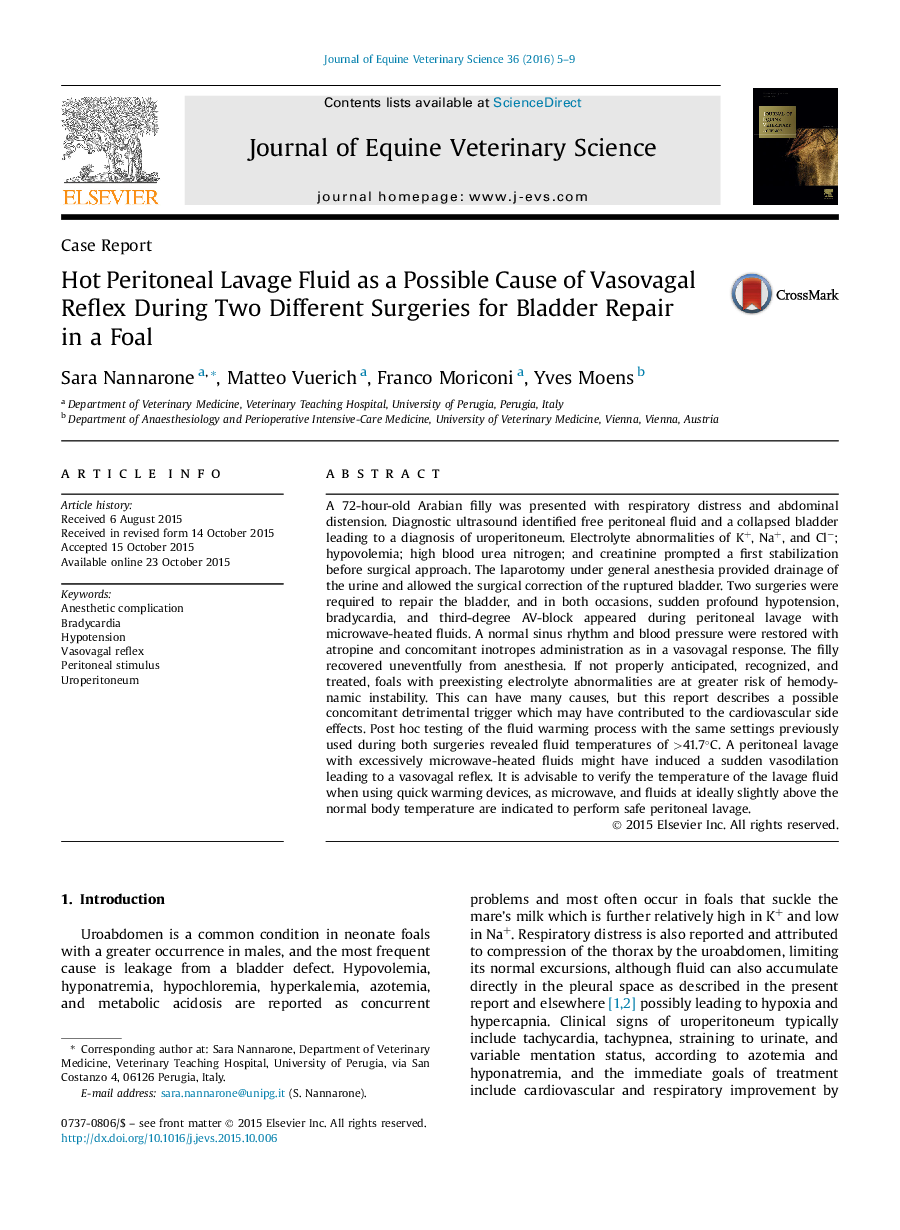| Article ID | Journal | Published Year | Pages | File Type |
|---|---|---|---|---|
| 2394766 | Journal of Equine Veterinary Science | 2016 | 5 Pages |
•A vasovagal reaction was likely induced by hot peritoneal lavage.•Electrolyte derangements were concomitant during surgery.•Hemodynamic instability was addressed with atropine, fluids, and inotropic support.•Lavage fluids should be heated with thermostat, as microwave can lead to overheating.
A 72-hour-old Arabian filly was presented with respiratory distress and abdominal distension. Diagnostic ultrasound identified free peritoneal fluid and a collapsed bladder leading to a diagnosis of uroperitoneum. Electrolyte abnormalities of K+, Na+, and Cl−; hypovolemia; high blood urea nitrogen; and creatinine prompted a first stabilization before surgical approach. The laparotomy under general anesthesia provided drainage of the urine and allowed the surgical correction of the ruptured bladder. Two surgeries were required to repair the bladder, and in both occasions, sudden profound hypotension, bradycardia, and third-degree AV-block appeared during peritoneal lavage with microwave-heated fluids. A normal sinus rhythm and blood pressure were restored with atropine and concomitant inotropes administration as in a vasovagal response. The filly recovered uneventfully from anesthesia. If not properly anticipated, recognized, and treated, foals with preexisting electrolyte abnormalities are at greater risk of hemodynamic instability. This can have many causes, but this report describes a possible concomitant detrimental trigger which may have contributed to the cardiovascular side effects. Post hoc testing of the fluid warming process with the same settings previously used during both surgeries revealed fluid temperatures of >41.7°C. A peritoneal lavage with excessively microwave-heated fluids might have induced a sudden vasodilation leading to a vasovagal reflex. It is advisable to verify the temperature of the lavage fluid when using quick warming devices, as microwave, and fluids at ideally slightly above the normal body temperature are indicated to perform safe peritoneal lavage.
